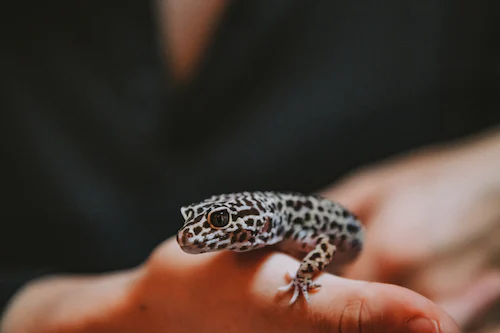
Geckos are fascinating creatures that require specific dietary nutrients to thrive in captivity. In this article, we will explore the importance of understanding gecko nutritional needs, with a particular focus on proteins, fats, and carbohydrates. By delving into the science behind their dietary requirements, we can ensure that geckos receive a well-balanced diet that promotes overall health and longevity. So, whether you are a gecko owner or simply curious about these unique reptiles, join us as we unravel the secrets to meeting their nutritional needs.
Gecko Nutritional Needs
Geckos are unique reptiles with specific nutritional needs that must be met in order to ensure their overall health and well-being. Understanding the importance of these nutritional needs is crucial for any gecko owner. Factors such as species and age, activity level and metabolism, and dietary repertoire and feeding habits all play a role in determining the specific nutritional requirements of geckos.
Importance of Understanding Gecko Nutritional Needs
Proper nutrition is essential for geckos to maintain optimal health and thrive in captivity. A well-balanced diet provides the necessary nutrients and energy for growth, reproduction, and overall metabolic functions. Without a proper understanding of their nutritional needs, geckos may suffer from various health issues such as metabolic bone disease, obesity, and vitamin deficiencies. By understanding and meeting their nutritional requirements, gecko owners can ensure the longevity and well-being of their beloved pets.

Factors Influencing Gecko Nutritional Needs
Several factors influence the nutritional needs of geckos, and it is important to consider each one when formulating their diet. Species and age play a significant role in determining the specific nutritional requirements of geckos. Different gecko species have varying dietary preferences and nutritional needs. Additionally, young geckos have higher protein and caloric requirements compared to adult geckos.
The activity level and metabolism of geckos also affect their nutritional needs. Highly active geckos may require additional protein and energy to support their increased metabolic rate. On the other hand, sedentary geckos may have lower energy requirements.
The dietary repertoire and feeding habits of geckos should be taken into account as well. Some geckos are strictly insectivorous, while others are omnivorous or herbivorous. The types of food available in their natural habitat would influence their nutritional needs in captivity.
Understanding the Role of Proteins, Fats, and Carbs in Gecko Diet
Proteins, fats, and carbohydrates are the three main macronutrients that have specific roles in a gecko’s diet. Understanding the importance and appropriate balance of these macronutrients is crucial in meeting the nutritional needs of geckos.
Proteins for Gecko Health
Proteins are essential for geckos as they serve as building blocks for tissues and organs. They are responsible for the growth and repair of body cells, enzymes, hormones, and antibodies. Proteins are composed of amino acids, which are categorized into essential and non-essential. Essential amino acids cannot be synthesized by geckos and must be obtained through their diet.
The quality and digestibility of proteins are also important considerations. Easily digestible proteins from high-quality sources ensure maximum absorption and utilization by geckos. In their natural habitats, geckos obtain proteins from various sources such as insects, small vertebrates, and plant matter.
Fats: Energy Reserve and More
Fats play a crucial role in a gecko’s diet as they are a concentrated source of energy. They provide a valuable reserve of energy that geckos can utilize during periods of low food availability. In addition to energy, fats also aid in the absorption of fat-soluble vitamins and provide insulation and protection to vital organs.
Geckos require a balanced intake of different types of fats. Omega-3 and omega-6 fatty acids are essential fatty acids that cannot be synthesized by geckos and must be obtained through their diet. Balancing the intake of these fatty acids is important for optimal health and overall well-being.
Carbohydrates for Sustained Energy
Carbohydrates serve as a source of quick and sustained energy for geckos. They are broken down into glucose, which is utilized by their cells for various metabolic processes. While geckos primarily obtain their energy from proteins and fats, carbohydrates can supplement their energy needs.
In their natural habitats, geckos may consume carbohydrates in the form of fruit, nectar, and plant matter. However, excessive intake of carbohydrates can lead to obesity and other health issues. It is important to provide geckos with a balanced diet that includes the appropriate amount of carbohydrates.

Optimizing Gecko Diets
To ensure that geckos receive a well-balanced diet, it is important to consider a balanced approach that provides them with the necessary nutrients. Varying their diet can also help meet their nutritional needs and prevent monotony. Additionally, supplementation and fortification with vitamins and minerals can help address any potential deficiencies in their diet.
Considering a Balanced Approach
A balanced approach to gecko diets involves providing a mix of appropriate protein, fat, and carbohydrate sources. This ensures that geckos receive all the essential nutrients they need to maintain optimal health. It is important to research the specific nutritional needs of each gecko species and tailor their diet accordingly.
Varying the Diet to Meet Nutritional Needs
Geckos may have a variety of dietary preferences and feeding habits, so it is important to provide them with a diverse range of foods. This can include offering different types of insects, fruits, and vegetables. Varying the diet not only helps meet their nutritional needs but also prevents them from becoming picky eaters.
Supplementation and Fortification
In some cases, geckos may require additional supplementation and fortification to ensure they are receiving all the necessary nutrients. This can be done by providing them with specialized vitamin and mineral supplements specifically formulated for geckos. It is important to consult with a veterinarian or reptile nutritionist to determine the appropriate supplements for the specific needs of your gecko.
Feeding Considerations for Different Gecko Species
Different gecko species have unique feeding habits and dietary preferences. It is important to understand these preferences in order to provide them with a diet that meets their specific nutritional needs.
Feeding Habits and Diet Preferences of Common Gecko Species
For example, leopard geckos are insectivorous and primarily feed on small invertebrates such as crickets and mealworms. Crested geckos, on the other hand, are omnivorous and require a mix of insects, fruits, and commercial diets.
Adapting Diets for Insectivorous, Omnivorous, and Herbivorous Geckos
Insectivorous geckos require a diet that consists mainly of insects. However, it is important to provide them with a variety of insects to ensure they receive a balanced nutritional profile. Omnivorous geckos can be fed a mix of insects, fruits, and vegetables. Herbivorous geckos, such as the Uroplatus species, require a diet primarily composed of plant matter.
Special Considerations for Breeding and Juvenile Geckos
Breeding and juvenile geckos have higher nutritional requirements compared to adults. They require increased protein and caloric intake to support growth and development. It is important to provide them with a diet that meets these increased needs to ensure their well-being and successful reproduction.

Dietary Challenges and Solutions
Gecko owners may face certain challenges when it comes to providing their pets with a nutritious diet. Availability of nutritious food sources and dietary limitations can pose obstacles. However, there are solutions to overcome these challenges.
Availability of Nutritious Food Sources
Finding a consistent supply of high-quality and nutritious food sources can be challenging for some gecko owners. In some cases, live insects may not be readily available or may not meet the specific nutritional needs of geckos. However, there are commercially available diets for geckos that can provide a convenient and nutritionally complete alternative to live insects.
Addressing Dietary Limitations
Some geckos may have dietary limitations due to health issues or specific dietary requirements. For example, geckos with metabolic bone disease may require additional calcium supplementation in their diet. It is important to work closely with a veterinarian or reptile nutritionist to address these limitations and ensure that the gecko’s nutritional needs are being met.
Identifying and Correcting Nutritional Deficiencies
Monitoring the gecko’s health and observing any signs of nutritional deficiencies is important in maintaining their overall well-being. Signs of deficiencies may include weight loss, lethargy, abnormalities in shedding, and poor growth. If any deficiencies are identified, adjustments can be made to the gecko’s diet to correct the imbalance and ensure they receive the necessary nutrients.
Monitoring and Adjusting Gecko Diets
Regular monitoring and adjustment of a gecko’s diet are essential to ensure their nutritional needs are being met. This involves observing signs of nutritional deficiency or excess, scheduling regular veterinary check-ups, and fine-tuning their diet based on their individual needs.
Observing Signs of Nutritional Deficiency or Excess
Gecko owners should closely monitor their pets for any signs of nutritional deficiency or excess. Weight fluctuation, changes in behavior or appearance, and abnormalities in shedding can indicate an imbalance in their diet. Adjustments can then be made to provide them with the appropriate nutrients they need.
Importance of Regular Vet Check-ups
Regular veterinary check-ups are crucial in ensuring the overall health and well-being of geckos. A veterinarian familiar with reptiles can assess the gecko’s health, address any potential nutritional deficiencies, and provide guidance on their diet. Routine check-ups also allow for early detection and prevention of any health issues.
Fine-tuning Diets Based on Gecko’s Individual Needs
Each gecko is unique and may have individual nutritional requirements. Fine-tuning their diet based on their specific needs is important to ensure they receive the necessary nutrients for optimal health. This may involve adjusting the proportions of proteins, fats, and carbohydrates in their diet or incorporating specific supplements.
Conclusion
Understanding the nutritional needs of geckos is crucial for their overall health and longevity. Proper nutrition, including the appropriate balance of proteins, fats, and carbohydrates, plays a vital role in meeting the specific requirements of geckos. By considering factors such as species and age, activity level and metabolism, and dietary repertoire and feeding habits, gecko owners can optimize their pets’ diets for optimal health and well-being. Continued research and education on gecko nutritional needs will contribute to the ongoing care and welfare of these fascinating reptiles.